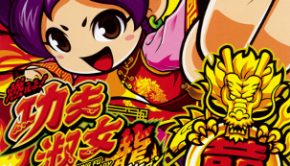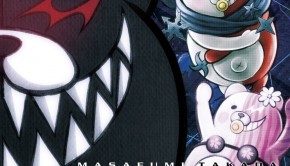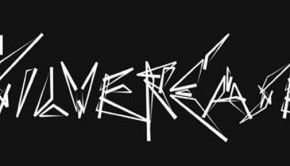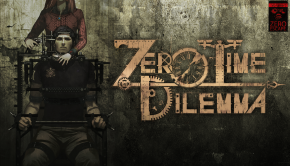Masafumi Takada and Kazutaka Kodaka: Discussion (HEAT UP!)
Masafumi Takada is president of his game music production studio, SOUND PRESTIGE. His works range from Grasshopper Manufacture classics, such as killer7 and God Hand, to a variety of high profile games, such as Vanquish and The Evil Within. However, he is probably most famous for his work on the Danganronpa series.
In this interview, joined by Kazutaka Kodaka, the creator and director for the Danganronpa series, the two discuss the music for the series, including the recently released Danganronpa V3: Killing Harmony
Interview Credits
Interview Subject: Masafumi Takada, Kazutaka Kodaka
Interviewer: Don Kotowski
Editor: Don Kotowski
Coordination: Don Kotowski, David Kracker (Spike Chunsoft)
Translation: David Kracker (Spike Chunsoft)
Interview Content
Don: Hello Takada san and Kodaka san, thank you very much for speaking with us today. Kodaka san, as the writer for the Danganronpa series, how important is the music that accompanies the games in realizing your true vision for the story?
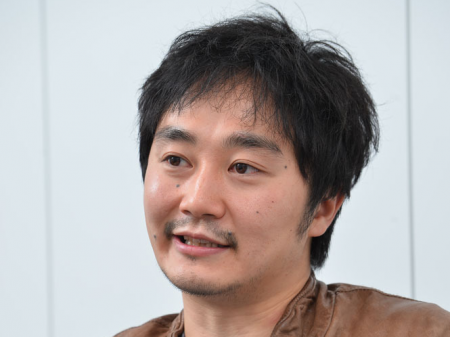
Kodaka: The music is super important, the entire vibe of the thing is just wrong if the story and music aren’t in sync. The music also represents the headspace of the characters; they’re two sides of the same coin.
Don: Takada san, you have worked on a plethora of games, in a multitude of genres, and musically, you have composed equally as many styles. Could you talk about some of your musical influences and musical background?
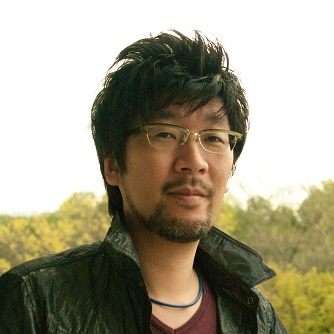
Takada: When I was a kid I learned on an electronic organ (the Electone) at the Yamaha Music School. I started expressing myself through music and the next thing I knew, I was able to pay my bills by composing tunes. Looking back, I was lucky to experiment with synthesizers while I was still impressionable. My style has kinda evolved with technology into what it is today.

Don: Takada-san, the music for Danganronpa: Trigger Happy Havoc is an eclectic blend of musical styles and genres and nothing says this more than the main theme, “DANGANRONPA.” When crafting the main theme, what sort of directions did you get from Kodaka san in terms of how it should sound and what were your inspirations when crafting this theme?
Takada: Kodaka-san asked me for something with some punch! I guess I took the energy from his project pitch and translated it into music. All I remember about writing it is… I didn’t have any time because I was busy with another project so I just banged it out in 20 or 30 minutes. Afterwards as I was cleaning up the arrangement I had my Mac’s robot voice say “Danganronpa!” and I gave myself goosebumps. I can still feel ‘em to this day. (Laughs)
During my stint at Grasshopper Manufacture I worked on the music for a title called The Silver Case. Kodaka-san had liked the game so I wanted to include a bit of fan service in Danganronpa; this turned out to be a little The Silver Case-esque section on marimbas.
Don: Takada san, one major element of the game itself are the exploration of Hope’s Peak Academy both before and after a murder has taken place. The music also changes up depending on which situation you are currently in. What were some of your key feelings that you wanted to convey in each of the pieces “Beautiful Days” and “Beautiful Dead?”
Takada: For the exploration themes, I tried combining a variety of tones and phrases to convey to the player that things big things are afoot. To me, they perfectly express the game world itself, so just listening to them makes me feel like I’ve got the controller in my hands.
Don: The other major element of the game is the trial to determine the murderer. What types of emotions did you want to craft with the music for these sections and did you have any challenges in creating something that fit the overall tone of the story?
Takada: The class trial music is all about creating and establishing momentum. It serves the same purpose as the BGM in a racing game. The voice samples ratchet up the excitement so I try to make the music punchy with clear rhythms that layer well with the voice samples.
It’s easier than you’d think for me to write music that matches the game world. When I see a plot outline and designs I can hear the music in my head, so all I have to do is make it real.
Don: Kodaka san, another key element in the game is that of Monokuma. Did you have any specific instructions for Takada san regarding music that plays for when he is present in the game or his general theme (i.e. Mr. Monokuma’s Extracurricular Lesson or Mr. Monokuma’s Lesson and what are your overall thoughts about those pieces?
Kodaka: I asked for hijinks, and that’s exactly what Takada-san delivered! The playful tone actually makes Monokuma seem more threatening, which is a success in my book.
Don: Takada san, when crafting the music for Monokuma, what did you want to convey about the character with his theme?
Takada: Psychopop shenanigans and lurking death. Something like, “We’re all gonna die sooner or later, cha-cha-cha!” (Laughs)

Don: The second game sees a new cast of characters and a new setting. Kodaka san, was there anything in particular that you wanted Takada san to convey musically about the new setting in the music featured, particularly in regards to exploration?
Kodaka: I wanted a tropical island feel. Takada-san takes an annual vacation in Hawaii so I don’t think it was a difficult order for him.
Don: Takada san, what were some of the choices you made in regards to the music to differentiate the music for this game from that of the first game and the inspirations behind those?
Takada: I had Kodaka-san’s request for a “tropical feel” as my base. From there, I wanted to emphasize the freedom of being under the open sky as opposed to being trapped in a building like the first game. Danganronpa 1 uses rather abrupt melodies to create a claustrophobic atmosphere. With Danganronpa 2, on the other hand, I wanted the player to feel that abundance of space.
Don: Given that Monokuma has his own antagonist, albeit one that gets bullied quite a bit, in the form of Usami in the second game, how did you come up with her theme and what did you want to convey with her theme?
Takada: For Monomi’s theme, “Ms. Monomi’s Practice Lesson,” I wanted to play with the fact that she’s been converted into a partial cyborg. The character wasn’t set in stone when I wrote the song, so I like to think that Monomi developed to match her music. (Laughs). It’s hard to catch, but the computer voice as the beginning is saying “Monomi.” “M-O-N-O-M-I~” Listen for it! (Laughs)
Don: Kodaka san, did you have any particular elements that you wanted Takada san to include regarding this character?
Kodaka: In contrast to Monokuma’s playful sound, I wanted Monomi’s theme to make her sound like a mascot worthy of your pity.
Don: Takada san, could you talk about your inspirations for how the music for the various island themes were crafted and why you decided to go in the direction that you did for each one?
Takada: I wrote the island themes based on the visuals and feel of the states themselves.
Don: Lastly, Takada san, I would love to hear your thoughts on the tune “Kill Command.” The tune itself is quite different from a large majority of the soundtrack, yet at the same time familiar. I, personally, love how it incorporates the main theme of the series in the accompanying guitar riffs while the energetic guitar plays. However, what types of emotions regarding the game’s story/climax were you trying to convey with this approach?
Takada: Usually when I need a guitar I ask my buddy Jun Fukuda. I wrote the rough composition based on his playstyle and he came up with the exact riffs I was hoping for: something intense that builds up to the climax.
Don: Kodaka san, could you describe some of your favorite pieces from this soundtrack as well?
Kodaka: I gotta go with the class trial music. The track evolves as you move through the trial but I love each and every iteration.
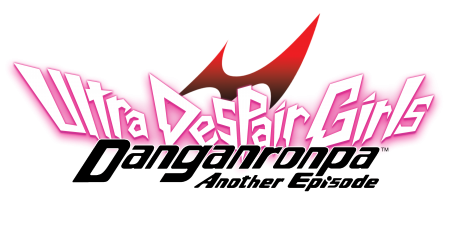
Don: Takada san, seeing as this is a spinoff title, how did you approach the music to this game in making it more suitable for the difference in gameplay and having its own musical identity, yet still incorporating the feelings of the previous games in the series?
Takada: When it comes to spinoffs, it’s common to embellish on the base melodies, but if I did that, UDG would have sounded too plain so I promised myself not to use any of the main melody lines. “That melody is reserved for numbered sequels!” I was the only one making it hard for myself… The tone of each track really sets the mood, so I tried to maintain the Danganronpa series tone in the new songs.
Don: Could you reflect on some of your favorite pieces on the soundtrack and what makes them so special to you?
Takada: My favorite track is probably “Ghost Stories From the School District of Revolution,” it really encompasses the feel of the game. I wanted to use a synth sound in the bridge section but it wasn’t happening with my new setup so I had to pull out my old Mac to do the recording. I could have used a different sound, but I knew what I wanted so I stuck to my guns even though I really didn’t have time to be so picky.
Don: Kodaka san, what were your thoughts on the overall execution of the title’s music and what pieces do you think best represent the story/world in this spinoff title and why?
Kodaka: I remember asking for an 80’s electro sound. You can hear this best in “Monoc-Man.”

Don: Takada san, for the anime score, which is a much darker story, what elements from the previous two games did you incorporate in terms of the musical score, both in terms of style and re-used themes? Did you find it more challenging to compose for the anime given its stricter structure compared to that of the games?
Takada: Video game music loops, but anime BGM needs to have a proper ending, so it was a new experience for me. Again, I was most concerned with the tone.

Don: Kodaka san, given that the 3rd main game in the series takes place in a new location with completely new characters, what sort of instructions did you give to Takada san in order to make the soundtrack sound fresh, yet at the same time, familiar to those who have followed the series since inception?
Kodaka: I asked for something that sounded a bit grown-up, more adult. It came out sounding pretty jazzy. This time around I wanted something more stylish than pop.
Don: Takada san, from what I’ve heard, the soundtrack for this game seems arguably darker in tone compared to the previous game. Would you say the setting of this game is what inspired this approach? What sorts of new additions in terms of either styles or instruments did you incorporate into the soundtrack to match the setting of the game?
Takada: I had recently moved studios so I was working with all-new equipment! I didn’t plan for the tracks to come off as dark, but once I heard them in action I have to agree, the whole thing did sound darker, probably because I was aiming to make it sound more “adult.”
Don: Takada san, could you discuss your approaches to the exploration music, trial music, and character themes for this soundtrack? Do you have any particular pieces that you feel someone playing the game should feel particular drawn towards?
Takada: To give you a quick look at my thought process:
-Exploration music should burn itself into your brain.
-Trial music emphasizes rhythms, with voice samples to build the hype.
-Characters themes should each have some unique hook, sometimes I play around with voices samples.
For example, the Monocubs are kids, so I wanted the sound to have a sort of generation gap.
I’m fond of “Beautiful Lie.” I’m happiest when I’m making this sort of track.
Don: Takada san, your record label has been responsible for publishing the soundtracks for the Danganronpa series. With the latest soundtrack release, the music for Danganronpa V3 seems to be split into two album releases, NEW DANGANRONPA V3 O.S.T. BLACK and NEW DANGANRONPA V3 O.S.T. WHITE. Could you describe the differences between the music on both album releases and if someone were only able to purchase one, which would you recommend and why?
Takada: Simply put, there was too much music for one album! If you like the class trial music and other tracks like it, you’re safe with just the BLACK album. If that leaves you hungry for more, pick up the WHITE album! The digital version on iTunes and Google Play also includes “The END of DNG,” the ending theme for the localized version. I wrote it after beating the game, so it includes all of my conflicted emotions. (Laughs)
Don: Lastly, could both you and Kodaka san reflect on some of your favorite pieces from the latest game in the series?
Kodaka: Even with all the new tracks, the class trial music is still my favorite. It represents everything Danganronpa means to me.
Takada: The “Body Discovery” series are landmark inventions in the history of soundtrack music so… I vote for those. (Laughs)
Don: Once again, thank you Takada san and Kodaka san for speaking with us today about the music of the Danganronpa series. Is there any message you want to give fans of the series and/or music in closing?
Takada: I’ve spent the last ten years trying to establish “Danganronpa” as its own genre and I still have plenty of unused material.
Kodaka: The music makes the games. Hearing the soundtrack makes me think, “Yeah, this is Danganronpa.” So throw on the OST from time to time and revisit the world of Danganronpa, and maybe replay them if the music moves you.
A special thanks goes to David Kracker of Spike Chunsoft for translating the questions and responses for the interview.
Posted on November 15, 2017 by Don Kotowski. Last modified on November 14, 2017.

